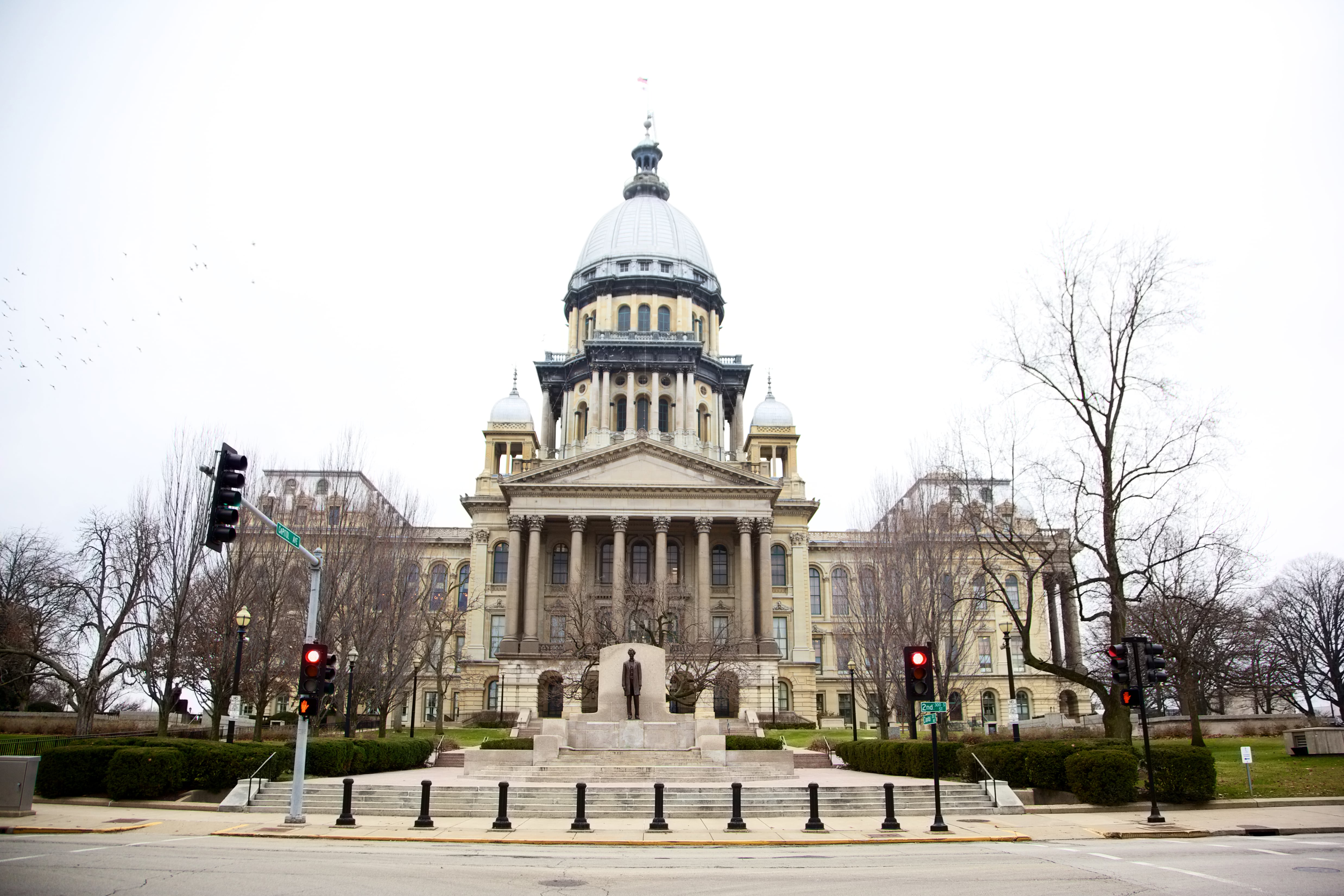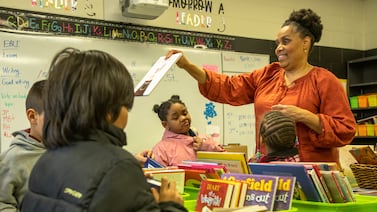Funding for K-12 schools, early childhood education, and student mental health will be key issues during the Illinois general assembly’s spring session.
State legislators returned to the capitol in late January and have been holding committee meetings, filling hundreds of bills, and working on the state’s budget for fiscal year 2024, which starts on July 1, 2023.
Here are six education issues Chalkbeat Chicago will watch during session:
Illinois could increase funding for early childhood education, K-12
In the $49.6 billion operating budget Gov. J.B. Pritzker proposed last week, he pushed for increased funding for early childhood education, K-12 school, and access to college and universities. Now legislators must decide where funding goes in the state’s budget.
If the state legislature goes with Pritzker’s proposal to put $250 million into early childhood education and child care workers, it would push the state closer to universal pre-kindergarten for the state’s youngest learners, make it easier for low-income families to get affordable child care, and increase pay for early childhood educators and child care workers to promote recruiting and retention.
The general assembly could increase the Illinois State Board of Education’s budget by $571.5 million, including $350 million toward the evidence-based funding formula for K-12 schools and $75 million for the Early Childhood Block Grant, as proposed by Pritzker. State education advocates say there needs to be a larger investment in K-12 schools and are calling for $550 million.
State Rep. William Davis, who represents suburbs that are south west of Chicago, has introduced a bill, HB 2792, that would require the state legislature to add a minimum of $550 million toward the state’s evidence-based funding formula. If passed and signed into law, it would take effect July 1, 2023.
Will kindergarten be expanded?
Currently, school districts are allowed to provide either half-day or full-day kindergarten for young learners. Research shows when schools switched from a half-day to full-day program, more children enrolled and attendance improved. Under HB 2396, a bill currently assigned to the House’s Child Care Accessibility & Early Childhood Education Committee, school districts would be required to create full-day kindergarten beginning with the 2023-24 school year.
According to the State Board of Education, districts do not report what type of kindergarten program they offer. In 2021-22, over 700 districts reported full-day kindergarten enrollments, but that may include students enrolled in half-day programs who are also receiving other services for the remainder of the day.
In some cases, the lack of full-day kindergarten is due to financial constraints. But Illinois also does not require students to attend school until age 6, or first grade. A separate bill, HB3143, would lower the required age to 5, but that bill does not currently have any co-sponsors.
Literacy advocates want evidence-based reading programs
The Right to Read Act was a major issue before it hit a snag in negotiations last year. The original bill would have required the State Board of Education to create a list of evidence-based reading programs, offer grants and professional development to schools, and require teacher preparation programs to give teacher candidates a reading assessment for licnesure.
This year, lawmakers have divided up the tenets of last year’s bill into three new bills. Each one has been introduced by State Sen. Kimberly Lightford, who represents northwest suburbs outside of Chicago, and sponsored the Right to Read Act last year.
The first bill, SB 2243, would require the State Board of Education to create a literacy plan for the state on or before Oct. 1, 2023. SB 2244 would outline how districts use state funding from the Reading Improvement Block Grant Program to provide evidence-based literacy curriculum to students. SB 2245 would create the Literacy and Justice for All Act and require the State Board of Education to create a rubric for school districts to evaluate reading instruction programs and develop literacy plans and guidance on evidence-based practice. The bill would also require the state board to create training opportunities for teachers and require teacher candidates to take a test in reading foundation before receiving a license.
Schools would be required to report informal removals
A bill that would collect data on students with disabilities who are removed from school buildings during the school year has been revived this session after hitting a roadblock last year.
State Rep. Michelle Mussman, a Democrat who serves Schamburg, a northwest suburb of Chicago, has introduced HB 3600 which would require any school removal to be documented with a notice to parents about the reason a student has been removed. The bill would also require the school to hold a meeting with a student’s Individualized Education Program team or Section 504 plan team if the number of days removed exceeds 10 days in a school year.
Special education advocates such as Access Living have advocated for such a bill over the past year because parents of students with disabilities are often called to pick up their child during the school day for informal removals. Since this action isn’t a formal removal — such as a suspension — there may not be a record of how many times a student has been removed from school.
Schools would get resources to educate migrant youth
Since the fall, thousands of people who migrated to the U.S. by crossing the Mexico border have been bused to Illinois by Texas officials. Many of the migrants are seeking asylum. Roughly 425 are school-aged children, state officials told Chalkbeat Chicago last fall. That number has likely grown since then. This week, WBEZ reported that the Chicago Teachers Union estimates that 1,200 school-aged children have arrived since the fall.
HB 2809 would support those migrant students by requiring the State Board of Education to create New Arrivals Student Grants for schools. Before awarding grant money to schools, the state board can consider the number of new arrival students enrolled in pre-K to 12th grade schools, the needs of the students, and the ability of the school to meet those needs.
Bills center on student mental health needs
The coronavirus pandemic had a major impact on student’s mental health. In 2021, 42% of high school students felt so sad or hopeless almost every day for at least two weeks in a row and stopped doing their usual activities, according to a report from the Centers for Disease Control and Prevention.
Nearly 60% of girls and nearly 70% of LGBQ+ students experienced persistent feelings of sadness or hopelessness, the report found. More than 20% of LGBQ+ students and 10% of girls attempted suicide, the CDC found
Several bills before the general assembly would address the mental health needs of students.
HB 3361 would require the State Board of Education to establish a School-Based Mental Health Services Grant program to help schools provide extra mental health services to students. HB 1234 would require all schools receiving public funds to post information detailing mental health resources provided by the school and state. That information must be posted somewhere students can easily access it.
HB 1243 would create a course in the 2024-25 school year on mental health to help students identify signs of anxiety, depression, and other forms of mental illness. Students between kindergarten and 12th grade would take the course every year for at least one semester,
HB 1107 would require schools to develop and implement a plan to support students who have experienced traumatic events.
Samantha Smylie is the state education reporter for Chalkbeat Chicago, covering school districts across the state, legislation, special education, and the state board of education. Contact Samantha at ssmylie@chalkbeat.org.







